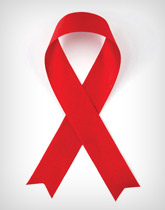
At 31%, the efficacy rate in a 2009 HIV-vaccine trial wasn’t spectacular by any stretch of the imagination. But—as the first clear sign that there might even be such a thing as a safe and effective vaccine for AIDS, which has killed more than 30 million people since it was first identified in 1981—it was cause for celebration.
For Peggy Johnston, at the time director of the Vaccine Research Program in the Division of AIDS at the National Institute of Allergy and Infectious Diseases (NIAID), it was also a moment of vindication.
As a member of the steering committee, she had supported the trial—even when 22 leading U.S. AIDS researchers, in a letter published in Science, had publicly argued against it as a waste of money.
The human-phase clinical trial took place in Thailand under the joint auspices of the U.S. Military HIV Research Program and the Thai Ministry of Public Health; it combined two genetically engineered vaccine hopefuls. At the heart of the controversy, which prompted the Science letter, was the fact that neither vaccine had shown much promise when administered alone in previous clinical studies. However, administered in a series of inoculations as prime and booster vaccines, the RV 144 vaccine did prevent HIV infection among some of the participants.
The results of the trial triggered further studies, which suggested that antibodies directed against a specific portion of the HIV’s external envelope protein are key players in protecting people from HIV infection. That promising news was recently published in the New England Journal of Medicine, further solidifying the view by nearly all researchers that the Thai trial initiated “the great hope of AIDS vaccine research.” It also exemplifies why Johnston (S’72) has been considered a global leader in HIV vaccine research for the past 20 years.

Her long career in AIDS research began in 1987 with a chance encounter. She was an assistant professor at the Uniformed Services University of the Health Sciences in Bethesda, Md. There, she was following what she saw as the typical university career path—“become a professor, teach school, have a lab, fight for research money,” she says. But all of that changed one day when she chatted with a former colleague as they waited at an elevator. He told her about a program starting at NIAID to focus on the AIDS pandemic. Might she be interested?
The idea appealed to her on several levels. “First of all, this was a disease affecting my community, since I am a member of the gay community,” she says. “Here’s a chance to do something that has a little more meaning for me personally.”
She took the job.
Early in the AIDS epidemic, the focus was on finding ways to treat the disease. Johnston launched programs to look for protease inhibitors—drugs that would inhibit the activity of the HIV protease, an enzyme critical to the development of the virus. Those protease inhibitors became a key component of highly active anti-retroviral therapy (HAART). That’s the combination of drugs that has allowed people with HIV/AIDS to live healthy lives of normal lifespan. HAART made AIDS less the dreaded death sentence of the 1980s and ’90s and more a manageable medical condition. Approximately 1.2 million people now live with HIV in the United States.
Johnston was also a guiding force in preclinical studies that set the stage for clinical studies showing that the antiretroviral drug AZT could be given safely to pregnant women to block transmission of AIDS to their babies. In addition, she oversaw clinical studies testing a more practical, simplified drug regimen for HIV-infected mothers in developing countries. “One of the biggest successes in AIDS has been prevention of mother-to-child transmission,” Johnston says. “We’re not exactly where we need to be yet. There’s still women who don’t have access yet to care and therapy. But we’re certainly doing a lot better—and pretty much have eliminated mother-child transmission here in the U.S.”
Today there’s a feeling of optimism that an AIDS vaccine will eventually be found to prevent the disease, thanks in no small part to her leadership. For her contributions to the prevention and treatment of HIV/AIDS, as well as vaccine development for the disease she has been the recipient of a Department of Health and Human Services Secretary’s Award for Distinguished Service, three NIH Director’s Awards, five NIH Merit Awards, and several non-government awards and citations.
Carnegie Mellon will award her the Alumni Distinguished Achievement Award (Margaret I. Johnston) on October 5.
Johnston, in the meantime, has moved on to a new phase in her life and career. Eligible to retire from the U.S. government at the end of 2010, she elected to move to the Pacific Northwest with her long-time partner, Sarah Temple. When colleagues at the Seattle-based Gates Foundation found out she was coming their way, they recruited her to work on tuberculosis as well as HIV vaccine research. Tuberculosis continues to be one of the world’s deadliest diseases. Two billion people are estimated to be infected with TB, with 1.5 million dying from it annually.
Meanwhile, the Washington countryside is providing Johnston with new roads for her BMW F650GS motorcycle. She says it’s one of the most relaxing things she’s ever done. “When you ride a motorcycle, you have to really focus on riding the motorcycle. You have to be constantly vigilant,” she says. “That takes my mind off everything else.
“Because I don’t have to think about saving the world. I just have to worry about saving my life.”
Sally Ann Flecker is an award-winning freelance writer who is a regular contributor to this magazine.
Related Links:
2012 Alumni Distinguished Achievement Honoree Lectures



